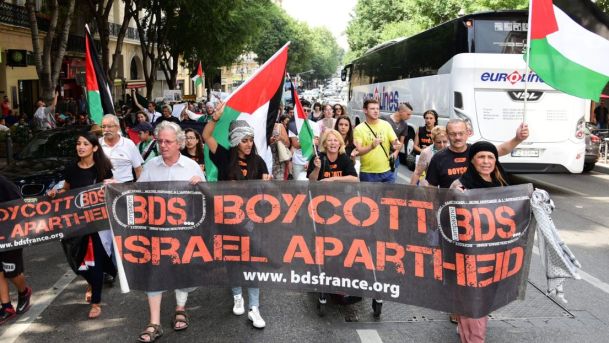New law doesn’t include caveat urged by Justice Ministry: To exempt Palestinians who reside in Israel.

The Knesset gave its final approval Monday evening to a bill that forbids granting entry visas or residency rights to foreign nationals who call for economic, cultural or academic boycotts of either Israel or the settlements.
The interior minister would be able to make exceptions to this rule if he deems it warranted in a particular case.
The bill, which was enacted into law after it passed its second and third readings, was backed by 46 lawmakers and opposed by 28.
The Knesset Interior and Environment Committee approved the final wording of the boycott bill, whose goal is to fight the international boycott, divestment and sanctions movement.
It says the entry ban will apply to any person “who knowingly issues a public call for boycotting Israel that, given the content of the call and the circumstances in which it was issued, has a reasonable possibility of leading to the imposition of a boycott – if the issuer was aware of this possibility.”
This definition was copied from a 2011 law that permitted civil lawsuits against BDS activists.
The ban would apply not just to people who call for boycotts against Israel, but also to those who call for boycotts of any Israeli institution or any “area under its control” – i.e., the settlements.
MK Roy Folkman (Kulanu), another of the bill’s sponsors, rejected the idea that the ban could apply to anyone who ever signed a petition against, for example, purchasing wine made in the settlements, noting that the definition contains several restrictive requirements. “It doesn’t cover any individual who ever said something,” he said last week. “It’s aimed mainly at organizations that work against Israel.”
He added that he submitted the bill only after the Interior Ministry expressed interest in changing the current situation – “in which visas are granted automatically, except for those visitors whom the interior minister specifically bars” – to a situation in which “entry will automatically be forbidden unless the interior minister decides to allow it.”
The Justice Ministry urged the Interior Committee to make an exception for Palestinians with temporary residency in Israel, like those admitted under the family unification program, who spend several years as temporary residents before receiving permanent residency. Exempting these Palestinians from the ban would make it easier for the law to withstand a court challenge, the ministry argued. But the committee rejected this idea.
“Why should I bring someone into my house who demonizes and undermines the state?” asked panel chairman David Amsalem (Likud). “We’re not afraid of criticism, but we have national pride. Someone who has already received temporary residency from us and is being considered for permanent residency, who comes and harms us, as a guest, why should we let him stay?”
Smotrich concurred, and rejected the idea that the law as its stands would have trouble surviving a court challenge.
“It’s completely proportionate,” he said. “Anyone who isn’t ashamed to accept a favor or privilege from us, but during his trial period spits in our face – he’s the first who should be stripped of his residency permit.”
